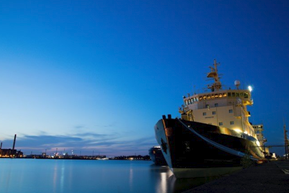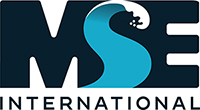Clean Maritime Demonstration Competition - registration closes 2nd June 2021

The Department for Transport is working with Innovate UK, part of UK Research and Innovation, to invest up to £20m for innovative clean maritime and smart shipping projects. The aim of this competition is to support the design and development of technologies for the reduction of greenhouse gas emissions by the UK’s maritime sector as set out in the Clean Maritime Plan and support the transition to Net Zero by 2050.
This competition is seeking solutions for all sizes and categories of maritime vessels. Solutions can be suitable for one target size or multiple sizes of vessels. All ports and harbours are in scope, including infrastructure for both freight and leisure.
The competition strongly encourages projects from around the UK to support boosting jobs and economic growth, including:
- ports
- vessel operators
- vessel manufacturers
- their relevant supply chain
There are two strands to this competition:
strand 1: feasibility studies, project costs £25k-£1m
strand 2: innovation projects, project costs £100k-£4m
Your project can start from 1 September 2021, must end by 31 March 2022, and can last up to 7 months.
To lead a project or work alone your organisation must:
- be a UK registered business of any size, a research organisation or a research and technology organisation (RTO)
- carry out its project work in the UK
- intend to exploit the results from or in the UK
If the lead organisation is an RTO or a research organisation it must collaborate with at least 1 business.
Academic institutions cannot work alone.
To collaborate with the lead, your organisation must:
- be a UK registered business, research organisation, academic institution, charity, not-for-profit, public sector organisation or research and technology organisation (RTO)
- carry out its project work in the UK
- intend to exploit the results from or in the UK
There is no limit on the number of applications an organisation can participate in.
The deadline for registration is 2nd June 2021.
For strand 1, your project must:
- review the technical and economic feasibility of solutions to reduce greenhouse gas emissions
- develop a clear plan for a future technology demonstration to be deployed after the feasibility project has been completed
For strand 2, your project must design, develop and test novel clean maritime or smart shipping technologies that reduce greenhouse emissions:
- from vessels
- from shore-side infrastructure at ports and harbours
Scope of projects
Your project for strand 1 or 2 can focus on one or more of the following themes:
On-vessel low and zero emission technologies:
- vessel propulsion (battery, fuel cell, hybrid, or engines using low carbon alternative fuels such as hydrogen, methanol or ammonia)
- propulsion systems using internal combustion engine technology capable of using multiple fuels including zero carbon options (such as hydrogen, methanol, ammonia)
- wind propulsion, including soft-sail, fixed-sail, rotor, kite and turbine technologies, targeting a range of ship types from small vessels to large cargo carriers, both as primary and auxiliary propulsion
- on-vessel power generation and fuel production to reduce GHG’s e.g. wind turbines, solar panels, synthetic fuel production
- low carbon energy storage and management
- physical connections to shore-side power, including fuelling lines
- enabling technologies such as motors, drives and power electronics
Port and shore-side solutions:
- shore-side low and zero carbon fuelling including bunkering of such fuels
- charging infrastructure and management
- low and zero emission shore-side power solutions, such as enabling docked vessels to turn off their conventional power supply for ancillary systems
- shore-side renewable energy generation at the port to supply vessels
- zero emission shore-side power supply as vessels are in harbour for the vessel’s main propulsion system, including grid or renewable energy supply
- low carbon fuel production (such as hydrogen, methanol, ammonia)
- zero emission infrastructure, including stationary assets for freight handling and port operations
Smart shipping technologies:
- autonomy, digitisation and better journey efficiencies directly and indirectly delivering quantifiable energy efficiency savings and, therefore, GHG emission reductions
- other smart shipping technologies, including the control of the emission reduction systems including but not limited to wind propulsion
The above are all in scope for both strand 1 and strand 2.
For strand 1 only, your project could also focus on:
Investigating green shipping corridors between the UK and other trading partners:
- assessing the potential of specific technologies in decarbonising trade routes between the UK and trading partners, geographically both near and far
- exploring barriers to the decarbonisation of trade routes
- exploring how innovative technologies or the novel application of existing technologies will address the barriers, enabling the creation of green corridors between the UK and its trading partners
An online briefing event was held on 29th March 2021 click here for recording of event.
For more information and links to application forms please click here.


